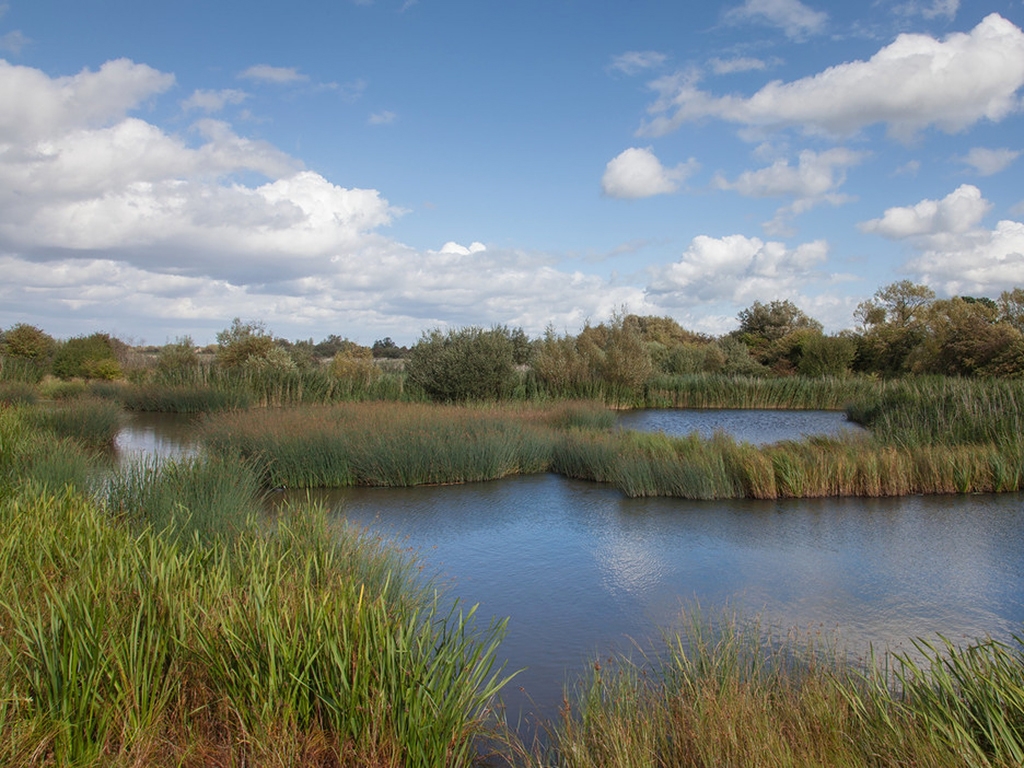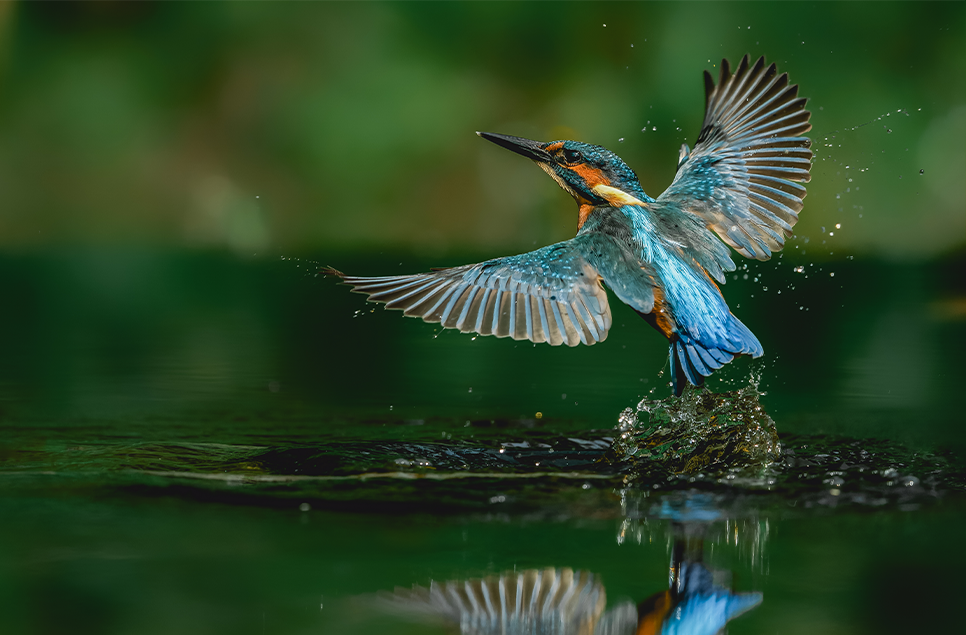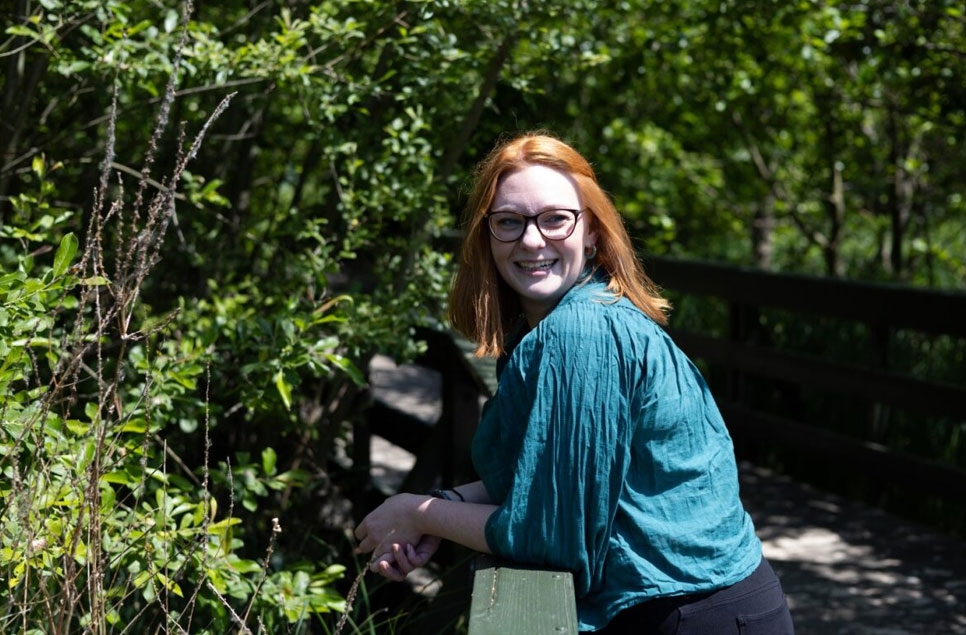Protecting Madagascar's wetlands: My Wild Life with Harison Andriambelo
Harison Andriambelo, WWT's Wetland Technical Advisor in Madagascar, writes about his love of wetlands and why it's so important that we recognise the importance and fragility of this habitat in Madagascar, as well as its forests.
Harison Andriambelo, WWT's Wetland Technical Advisor in Madagascar, writes about his love of wetlands and why we should all recognise the importance and fragility of this habitat, as well as forests.
I love wetlands. For me, working to protect these habitats is the best job in the world. Since I was a kid, I have lived in a village surrounded by wetlands. Playing there was such a joy when I was young – I used to catch fish, butterflies and dragonflies.
Not everyone is aware that wetlands are biodiversity hotspots. But from the moment WWT began supporting wetland conservation in Madagascar in 2014, local NGOs recognised the importance of these special but fragile ecosystems. WWT now helps the NGOs to build capacity around wetland conservation in our country.
I was proud to work on the Madagascar pochard reintroduction project. If the world’s rarest duck went extinct, it would be a huge loss for global biodiversity. Future generations would never again see this species in the wild. The pochards are international ambassadors for Madagascar’s wetlands – without them, these ecologically valuable habitats would be at risk.
WWT has worked with local communities to help them appreciate how important it is to protect the Madagascar pochard. We can save this critically endangered bird from extinction through its reintroduction to Lake Sofia – but we cannot do it alone. And getting the community involved with wetlands conservation has had other benefits - it has paved the way for them to change unsustainable agricultural practices and develop alternative livelihoods, that were otherwise negatively impacting the environment of Madagascar.
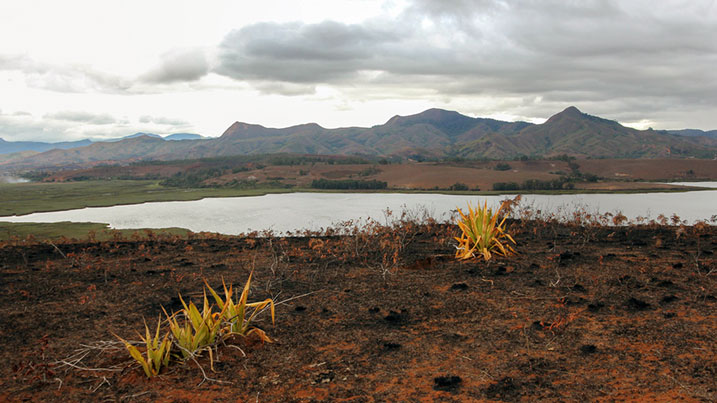
Working to conserve wetlands in Madagascar is challenging, because so much of the country is converted to rice production. Every patch of wetland is turned into rice fields. To change people's attitudes, I want to set up a operational National Committee for wetland wise use and a Civil Society to address issues about wetland conservation in Madagascar at a different scale.
Local people depend on wetlands more than you can imagine. So our goal is to help them benefit from the conservation and sustainable use of these ecosystems, for example, by increasing rice yields and improving fish stocks.
I’ve learned many things in the course of my career with WWT, but the most important is the value of partnerships in conserving wetlands. Every day, I work closely with our partners from Durrell and other key wetland stakeholders.
Today, I run national, regional and local workshops to help NGOs understand the ‘wise use’ of wetlands. This is the conservation and sustainable use of wetlands and all the services they provide, for the benefit of people and nature.
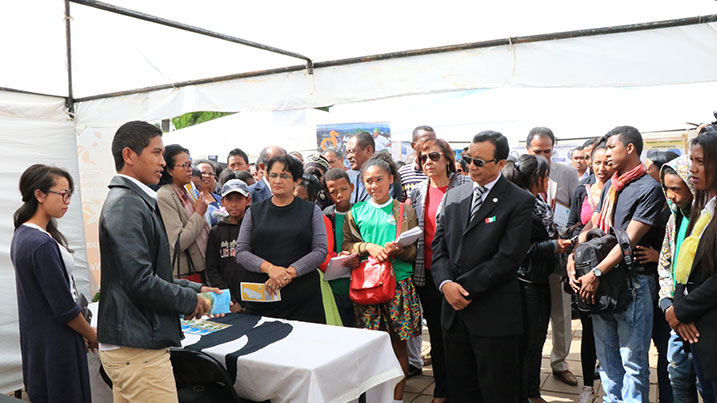
I was proud to help WWT develop national guidelines for the wise use of wetlands in Madagascar.The report was launched at our World Wetlands Day celebrations last year, which were attended by the Ministry of Environment and all our partners. I am now working to ensure they will have a long legacy among wetland stakeholders.
My greatest achievement so far has been organising a big national workshop that brought together stakeholders from lots of different sectors, such as agriculture, fisheries, industries, water and hygiene, to work together for wetland habitats.
One day I hope to work on Madagascar teal and the lesser and greater flamingos that breedin my country. I’m also interested in terrestrial wetland birds, such as the Madagascar pond heron and egrets.These birds deserve more attention, as their home is threatened by many factors, including climate change.
If I could wave a magic wand, I would wish to reverse the degradation of Madagascar’s once-beautiful wetlands and restore them – and all their native wildlife – to full health. Maybe one day this will come true...
What's next?
Harison will be joining Durrell and OSDRM to officially hand over equipment to the Lake Sofia community, where they are establishing a farming equipment rental scheme. The kit is of high capital value which can be rented at a low price by local farmers to greatly increase profitability of farming.
During the rest of 2019, WWT will continue lake restoration, especially aquatic water plant habitats.
